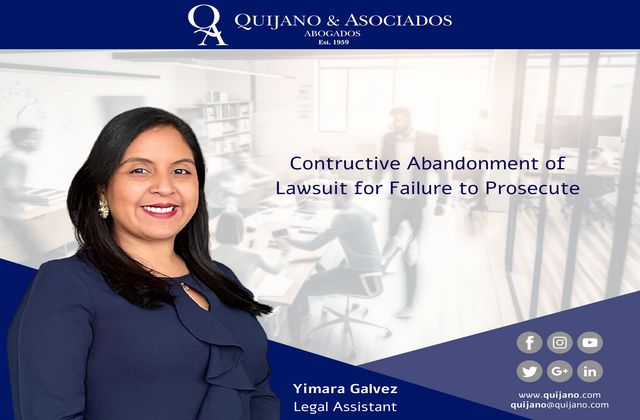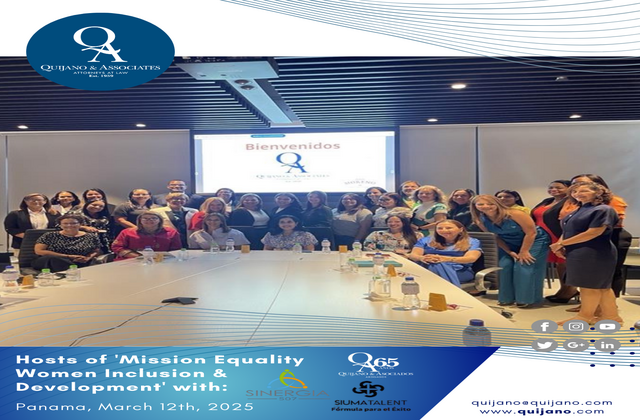Contructive Abandonment of Lawsuit for Failure to Prosecute

There are many processes that are neglected by the attorneys of the parties, and this may result in legal consequences.
Each of the parties has a fundamental role in the process. The judge is responsible for the impulse and direction, as well as for taking measures to avoid its interruption and to promote its rapid processing, however, pursuant to the provisions of article 466 of our Judicial Code, the plaintiff must also comply with its procedural actions within the terms established by law so that the expiration of the instance is not decreed.
The expiration of the instance is an exceptional means of termination of the process as a result of the inactivity of the petitioner within the terms contemplated by law.
It is important to highlight that our legal system contemplates 3 types of forfeiture: ordinary, special, and extraordinary.
“The common or ordinary expiration, established in article 1103 of the Judicial Code, operates when the process has been paralyzed for more than three months. In these cases, according to the jurisprudence of the Supreme Court of Justice, it is necessary to distinguish whether the interruption is attributable to the plaintiff, that is to say, if it is due to lack of action that the plaintiff was called upon to take, or if the interruption is attributable to the Court, that is, due to lack of action that the Court was called upon to take. (Motion for contructive abandonment of lawsuit for failure to prosecute filed by the forensic firm Cruz Ríos y Asociados, acting for and on behalf of Luis Enrique Barranca Ponzada…).
The following are the legal assumptions that must be met for the common or ordinary contructive abandonment to produce its effects:
a) that the Litis has been filed;
b) that the process has been paralyzed for more than three months; and
c) that the term of three months of interruption of the process will be counted from the last act, diligence, or management.
The special contructive abandonment of lawsuit for failure to prosecute arises when the claim is not notified within three months and there is a preventive annotation of the claim in the Public Registry or any other precautionary measure (Article 1112).
On the other hand, Article 1113 of the Judicial Code contemplates extraordinary contructive abandonment, “…The interruption of the process for two years or more, without any written request from the party, will give rise to extraordinary contructive abandonment…”,
It is also important to know that the contructive abandonment does not operate ex officio, and any action may interrupt it, as stated in article 1109 of the same legal excerpt “…”. The contructive abandonment does not operate ex officio. If the Judge has not declared the contructive abandonment, nor the interested party has requested it and there is a subsequent action, the opportunity to declare it will be precluded”.
Finally, this legal precept will not be applicable in non-contentious proceedings.
Therefore, it is important to have a team of lawyers who are up to date and familiar with all the procedural stages.




